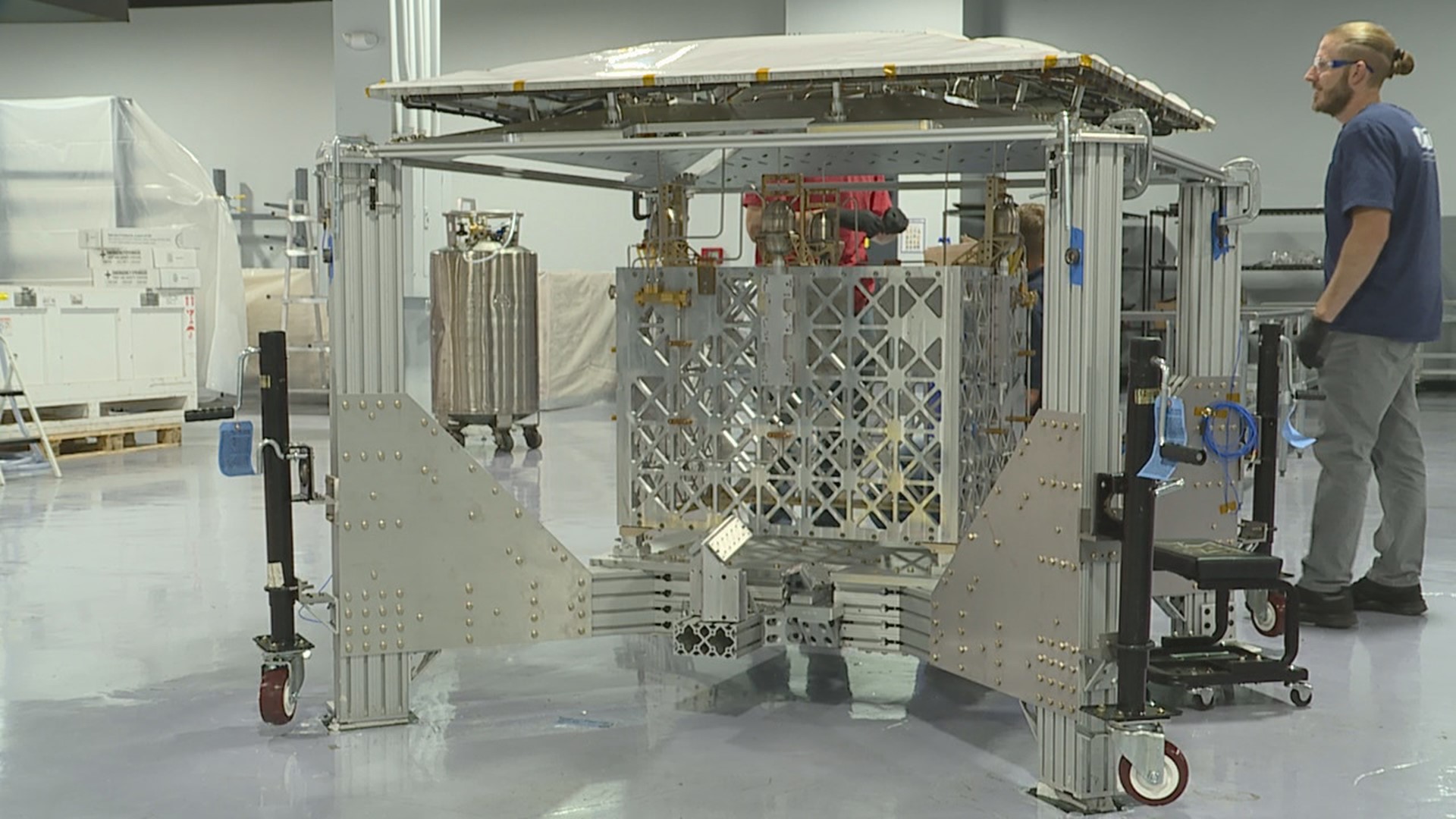LANCASTER, Pa. — After being contracted by NASA, a small Lancaster County company is on a mission to the moon.
Project leaders from Advanced Cooling Technologies (ACT) are hoping their contribution will be used to make space exploration history.
“It’s not often that in Lancaster we’re building space flight hardware that is going to a moon,” said Bryan Muzyka, the vice president of sales and marketing.
For more than four years, engineers at ACT have been hard at work to help develop NASA’s next lunar rover nicknamed Viper. Viper is an acronym for Volatiles Investigating Polar Exploration Rover. ACT was contracted by NASA through the Small Business Innovation Research Program. The mission is to find and map water at the south pole of the moon.
“It’s going to be the first rover, the first space vehicle, to ever map out where and how we could possibly extract water in the future,” Muzyka described.
Discovering water could open the door to colonizing the moon.
The moon’s south pole is the coldest of its surface. Without proper temperature management, Viper’s electronics could malfunction. ACT was contracted to develop Viper’s passive heat transfer, a thermo-management modular that regulates Viper’s temperature.
“One of the big technical challenges was surviving lunar night on the moon,” Muzyka said.
“The box that’s in the center here, they call it the warm box, so that’s where all the instruments and scientific stuff is being held, and basically while it’s driving around during the day, we’re removing all the heat and rejecting that into the environment,” said Jimmy Huges, the lead engineer.
More than 200 people participated in the project’s development.
“We’ve been working on this for probably two-and-a-half to three years,” Hughes said.
“At the end of the day we dotted all the i’s, crossed all the t’s, went through a lot of technical and analytical calculations as well as hardware prototyping and testing,” Muzyka said.
On Tuesday, the thermo-management modular was transported to Space Center Houston in a climate-controlled crate. It’s expected to later be transported to Astrobotic Technology Inc. in Pittsburgh. Viper is expected to launch in November 2024 and touchdown on the moon’s surface by 2025.

